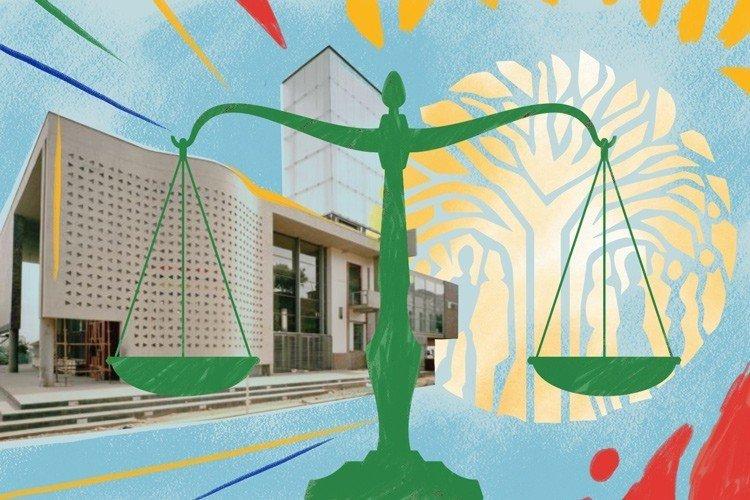Africa-Press – South-Africa. A harassment order obtained by a Western Cape man against his former girlfriend who accused him of raping her at a time when their relationship was strained, has been overturned by the Western Cape High Court.
Judge Robert Henney, with Judge Daniel Thulare concurring, said there were no legal grounds for the magistrate who heard the initial matter in November 2020 to grant the order, according to a GroundUp report.
They said comments made by the magistrate during that hearing “had perpetuated the notion that victims of gender-based violence should not speak out, should remain silent about their experiences, and should be careful who they speak to”.
The order granted in the magistrate’s court effectively gagged the woman from telling anyone that her former boyfriend had raped her.
In her appeal, she said this was wrong in law and constituted a regression in the fight against gender-based violence, and could impact millions of women in South Africa.
The Centre for Applied Legal Studies (CALS) and WISE 4-AFRIKA were admitted as amicus curiae and made submissions regarding the rights of survivors of sexual offences.
The couple were involved in a relationship between 2012 and 2015. According to the woman, she suffered both emotional and mental abuse.
When the relationship ended in December 2016, she obtained a protection order against him. Prior to that, in private exchanges between them, she had accused him of raping her.
Following their break-up, she made general comments on social media about gender-based violence. In one, she had said “@rapist I see you”.
She had also posted on a WhatsApp group of survivors and a private Instagram group called “Calling You Out CT” in which she identified her former boyfriend as a rapist.
‘They tried to silence me’: Pretoria woman fights for justice 17 years after alleged rape at Vatican Embassy
She said the group was a private space for women to speak out about their experiences, not a public platform.
She was “devastated” when some of those details were made public, without her permission, after a national outcry following the murder of UCT student Uyinene Mrwetyana.
It was as a result of these public posts that the man sought and obtained the protection order.
One of his complaints was that she had never laid criminal charges against him.
Henney, in his ruling, said it was common cause that she had made a conscious decision not to report the matter to the police.
He referred to a long history of correspondence between the couple both during and after they broke up, saying that probability was overwhelming in favour of her version, that he admitted he raped her in July 2015.
“She was therefore justified to call him a rapist… There was no need for her to lay a charge against him and to have him prosecuted and convicted,” the judge said.
Henney added:
Henney said the reasons why rape victims do not lay charges were well-known. The woman was not spreading salacious gossip, but trying to be heard, to find healing and to protect others from suffering the same fate.
“She had a right to speak out,” he said.
“I am reluctant to state, as a general proposition, that in all matters concerning gender-based violence, the victim’s right to express themselves freely outweighs the perpetrator’s right to dignity and privacy, especially in a matter like this where we are not dealing with a defamation action.
“The facts and circumstances of a given case will influence such a decision, or will have a material impact on such a decision. But given the facts and circumstances of this case, as I found earlier on, the appellant was justified in doing so.”
Turning to the Act, he said the harassment order was not lawfully granted.
I ‘wanted the court and God to punish’ my father – young Durban survivor after rapist gets life
“It is common cause that the appellant began to tell other people about the rape she endured at the hands of the respondent. She did this by telling other victims about the rape, which I agree was her right. It is not disputed that at no time did she publish or publicly name the respondent as her rapist.”
She furthermore sent private WhatsApp messages to a group of survivors, and posted in the private Instagram group CYO, in which she identified the respondent as her rapist.
He said:
He said the magistrate hearing the matter had “unfortunately” commented: “This case also emphasised and highlighted that no one can be trusted with your secrets.
“By making this comment, the magistrate, in my view, and with due respect, perpetuated the notion that victims of gender-based violence should not speak out, should remain silent about their experiences, and should be careful who they speak to.
Henney said the magistrate had completely ignored the undisputed evidence that other people, not his ex-girlfriend, had gone public with the man’s name.
“This amounts to a serious misdirection on the part of the magistrate and cannot by any stretch of the imagination support a finding of harassment,” he said.
“While it may have caused him harm, it was not caused by the conduct of the appellant (his ex-girlfriend) and I am of the view that the protection order granted by the (magistrate) falls to be set aside.”
Never miss a story. Choose from our range of newsletters to get the news you want delivered straight to your inbox.
For More News And Analysis About South-Africa Follow Africa-Press






